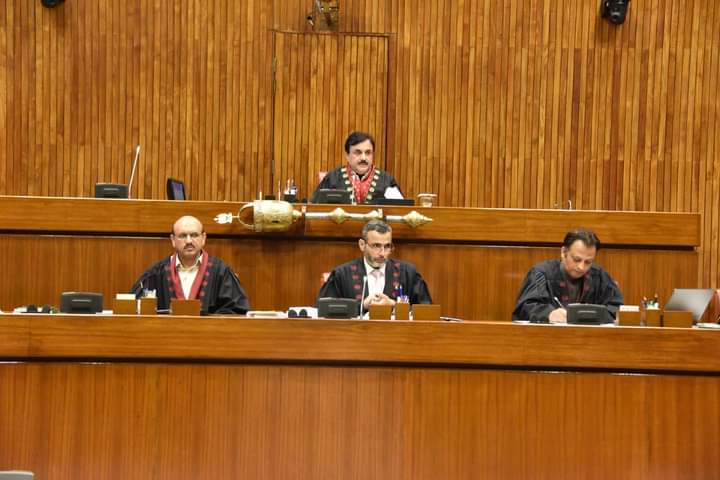
Islamabad : The Senate Standing Committee on Finance and Revenue convened its 7th session to deliberate on the Finance Bill, 2024, incorporating the Annual Budget Statement presented to the House on 12th June 2024. The meeting took place at the Parliament House and was chaired by Senator Saleem Mandviwalla.
The committee, comprising Senators Sherry Rehman, Farooq Hamid Naek, Mohsin Aziz, Fesal Vawda, and Senator Manzoor Ahmed Kakar, along with officials from the Federal Board of Revenue (FBR) and relevant stakeholders, engaged in extensive discussions over two sessions spanning a total of 7 hours.
During the first session, significant focus was placed on federal excise provisions within the Finance Bill. Detailed deliberations ensued regarding the proposed amendment to penalize retailers selling cigarette packs without proper tax stamps or labels, with provisions for sealing their outlets. Amendments were also discussed regarding the taxation on e-liquids and restrictions on introducing new cigarette brand variants at lower prices. The committee approved the imposition of an 18% sales tax on nicotine pouches and discussed duties on electronic cigarette imports.
The committee also deliberated the proposal to abolish the 20% Federal Excise Duty (FED) on packaged juices. The Fruit Juice Council argued that the current tax structure, coupled with GST, adversely affects consumer affordability and hampers export potential for local juice manufacturers. However, the committee decided to retain the existing tax structure, emphasizing continuity with previous financial legislation.
Discussions also addressed taxation issues in the property sector and anticipated inflation rates for the upcoming financial year. Senator Saleem Mandviwalla raised concerns about potential consumer impacts due to tax levies, while the Chairman of the FBR highlighted current tax rates in various sectors.
The committee debated tax rates on electric and hybrid vehicles, with Senator Fesal Vawda advocating for supportive policies to maintain investor confidence in fuel-independent technologies. The FBR officials clarified taxation disparities between imported and domestically manufactured vehicles, emphasizing the Ministry of Industry’s jurisdiction over such matters.
The second session included presentations from stakeholders in the telecommunications and steel mill industries. The telecommunications sector presented grievances related to advance tax collections and sales taxes on mobile handsets, while issues pertinent to the steel mill industry were referred to an anomaly committee for further review and resolution.
In response to inquiries about inflation projections for the upcoming financial year, the Chairman of the FBR indicated uncertainty but expressed confidence in revenue growth. Senator Saleem Mandviwalla highlighted concerns that increased taxes may translate into higher inflation rates.
The committee concluded with recommendations to engage further with stakeholders on unresolved issues and to ensure fair taxation policies that support economic stability and growth.
